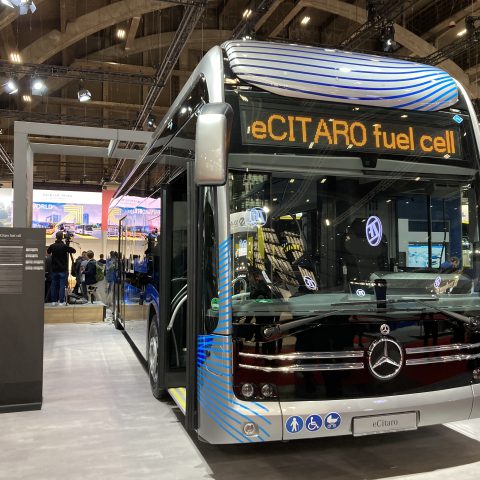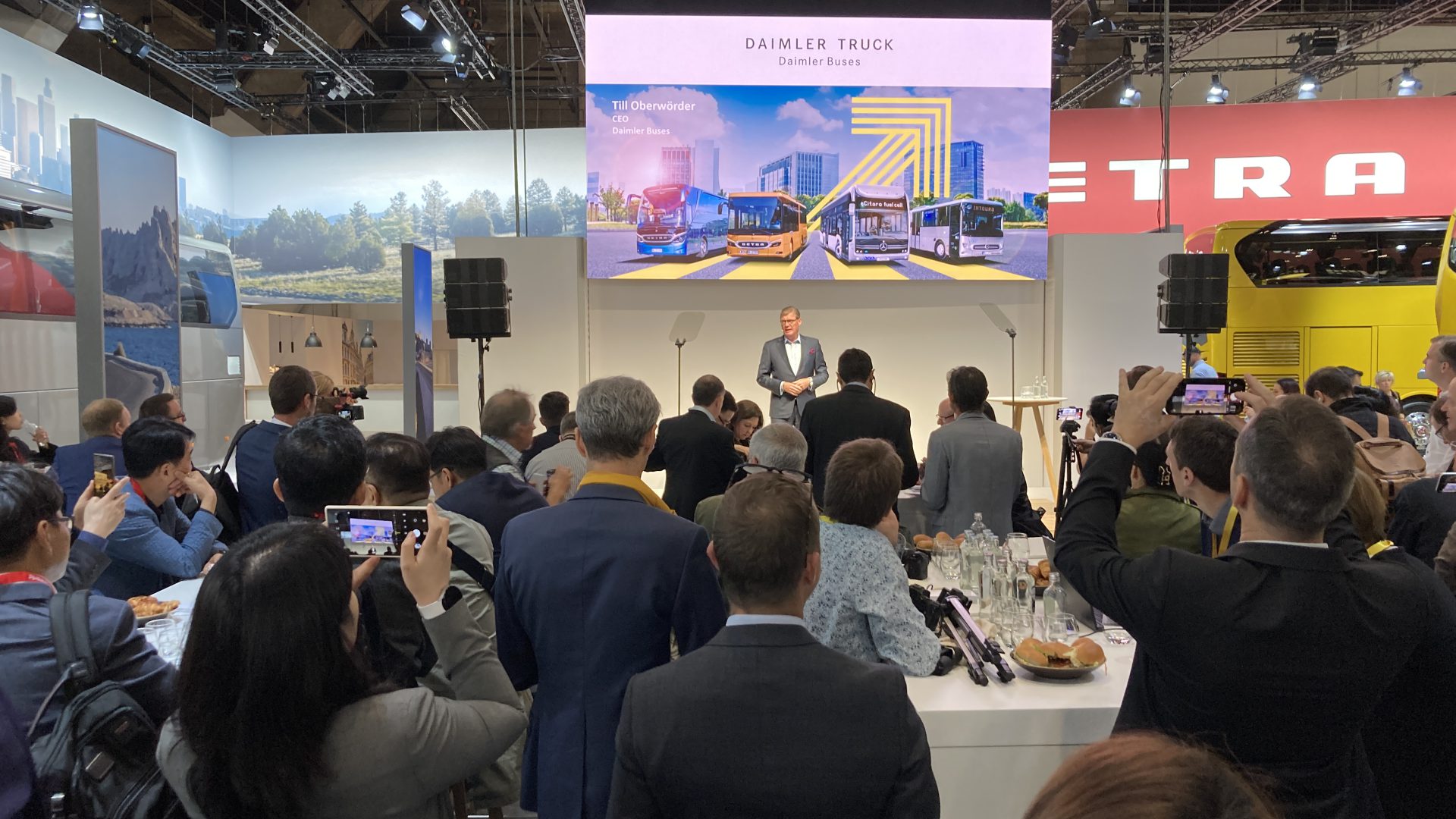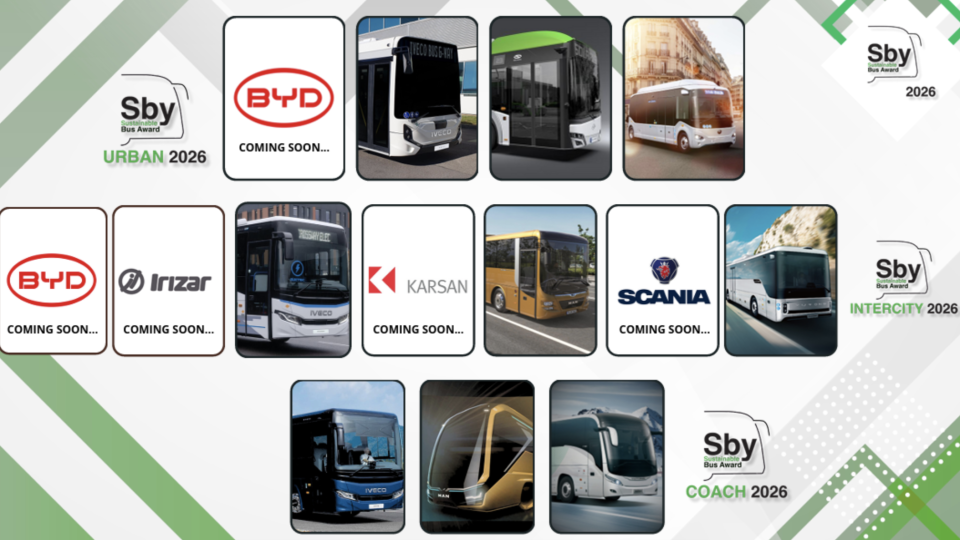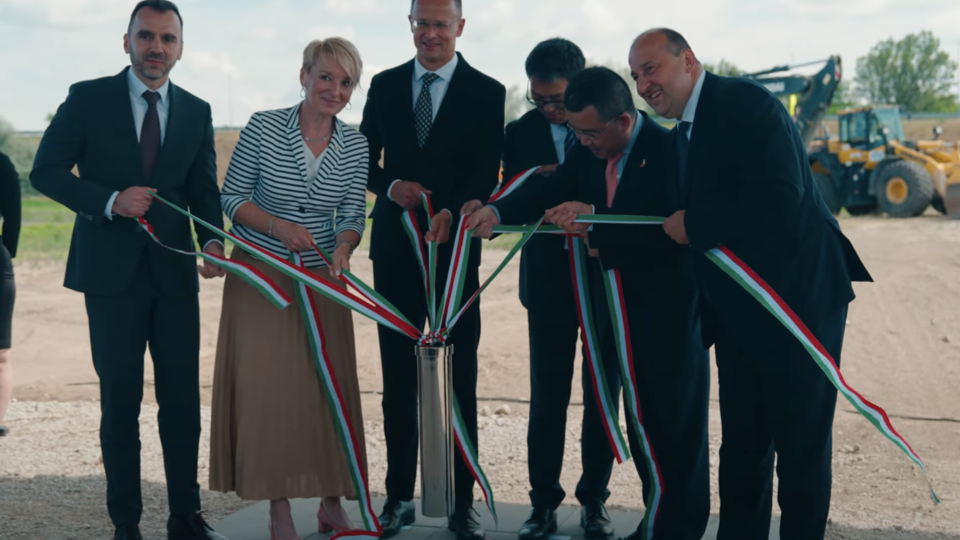According to Daimler Buses, only electrically powered city buses should be allowed in Europe from 2030
Daimler Buses believes that a halving of CO2 emissions from new buses in Europe is possible from 2030, compared to 2025, across all segments. To achieve this, a comprehensive supportive policy framework is necessary. The company made this announcement today at Busworld in Brussels, thus supporting EU Commission proposal for all new city buses to […]

Daimler Buses believes that a halving of CO2 emissions from new buses in Europe is possible from 2030, compared to 2025, across all segments. To achieve this, a comprehensive supportive policy framework is necessary. The company made this announcement today at Busworld in Brussels, thus supporting EU Commission proposal for all new city buses to be zero emission starting in 2030.
According to the manufacturer, only electrically powered city buses should be allowed in Europe from 2030. Daimler Buses also expects that the total cost of ownership (TCO) of a zero-emission city bus will be equivalent to that of a diesel bus by 2030 and may even exceed it, depending on energy costs.

Daimler Buses: only zero emission buses from 2030 is necessary
Daimler Buses also believes that long-term subsides for e-infrastructure at depots – for both city buses and coaches – are necessary. This is intended to reduce one-off costs incurred by bus operators when switching from conventionally powered to electric buses. In addition, the development of a public charging and hydrogen refueling infrastructure for coaches is required. This is a particularly big challenge compared to the city bus segment, as the infrastructure has to be available everywhere.
Subsidies in this segment must cover e-infrastructure and vehicles as well. Daimler Buses therefore considers a contribution of the coach segment to CO2 reduction of 20 percent to be extremely ambitious, but realistic.
Daimler Buses strategies in zero emission buses
Daimler Buses plans to have a battery electric powered intercity bus in its portfolio from the second half of the decade and electrically powered coaches by the end of the decade. With this, Daimler Buses aims to offer locally CO2-neutral models based on batteries or hydrogen in every segment by 2030. The focus is initially on the core markets of Europe and Latin America. The plans are for only locally CO2-neutral new vehicles to be sold in the core market of Europe by 2039. In the city bus segment, this is expected to be the case in Europe as early as 2030.
Till Oberwörder, CEO Daimler Buses: “The bus industry can significantly reduce CO2 emissions in Europe from 2030. For this to succeed, the policy framework must be tailored to each segment. For city buses, maximum electrification is absolutely possible. In our view, it is crucial here that the entire industry can focus fully on CO2-neutral solutions. For the coach segment, we need a comprehensive charging and H2 refueling infrastructure. And we need achievable targets from policymakers. We must be able to use our financial resources fully for the development of zero-emission technologies – and not for EURO 7 or possible penalties for not meeting targets.”
Oberwörder continues: “It will take a joint effort by governments, manufacturers, bus operators and the energy industry to get high-volume electric buses onto the roads as quickly as possible. We must now work together to ensure that companies can operate electrified buses economically. As a manufacturer, we make our contribution by offering the right electrified buses and supporting our customers with our expertise in electrifying their fleets.”
Daimler Buses at Busworld
In addition to the new safety features of the buses, the topic of electromobility is the focus of Daimler Buses’ trade fair appearance. From October 7th to 12th, the company is presenting the latest products such as the eCitaro fuel cell city bus with a hydrogen-based fuel cell as a range extender, the MirrorCam as a mirror replacement as well as services related to the building up of e-infrastructure by Daimler Buses Solutions GmbH.









